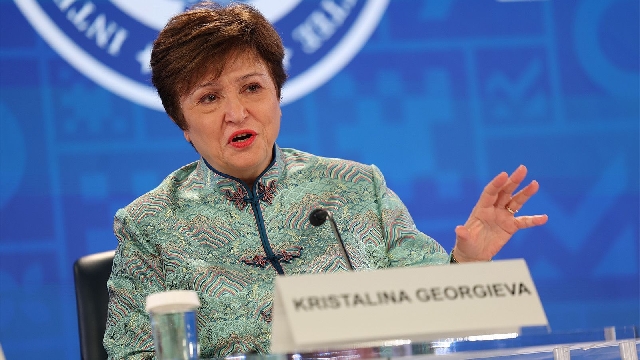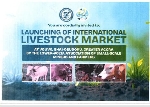IMF to direct more funding to low-income countries, help speed up debt restructuring
 IMF MD Kristalina Georgieva
IMF MD Kristalina Georgieva
On the current state of the global economy, Ms Georgieva said: “On the positive side, the world economy has proven to be remarkably resilient to the multiple shocks of the last years. Inflation generated by these shocks, and the response to them, is finally receding. Major economies are poised to avoid the recession that many feared would take hold.”
However, she pointed out, “We also see that prospects for growth are at their weakest in decades, which means fewer jobs and lower incomes,” adding: “We expect global growth of around 3 per cent each year over the next five years. This is almost a percentage point lower than in the decades before the pandemic.”
“Worryingly, these trends are most dramatic for low-income countries. These countries’ output is still 7.5 per cent below the pre-pandemic growth trajectory. Add to this elevated debt pressures, and we see risks of a low growth-high debt trap,” she projected.
The political economy environment, she noted, “is also becoming even more complex,” citing: “In many countries, feelings of unfairness are eroding trust and stoking social unrest. Globally, fragmentation is rising.”
“And yet, we stand at the cusp of a remarkable transformation fuelled by green innovation and technological change. We can harness green growth and create green jobs if policymakers are laser-focused on reshaping their economies. Technology can provide a much-needed boost to productivity if deployed properly. For instance, IMF analysis suggests that artificial intelligence has the potential to add up to 0.8 percentage points to global growth.”
“This global backdrop translates into three essential policy recommendations for our member countries: (i) continue to do what works well—implement strong policies and build strong institutions; (ii) remove the obstacles to growth both domestically and internationally; and (iii) resist excessive protectionism, so we can build a stronger global economy together,” she listed.
The IMF, she pointed out, is doing its part, driven by four priorities.
“Firstly, we will continue to work with our members to help them design sound macroeconomic policies.”
Secondly, she announced: “We will leverage our financial strength to direct more resources to low-income countries. We provided financing of US$370 billion to our members over the past few years, and we are generating more funding for low-income countries through the Poverty Reduction and Growth Trust and the Resilience and Sustainability Trust.”
Thirdly, she said the IMF “will continue to help countries address debt issues and speed up debt restructuring, including through the Common Framework. We established, jointly with the World Bank, the Global Sovereign Debt Roundtable and we modified our debt policies to ensure that we can provide financing to countries more quickly.”
Finally, Ms Georgieva promised that the IMF “will continue to work to become more representative. Our membership agreed to create a third chair for Sub-Saharan Africa on our Executive Board to improve the region’s voice and representation. We are also working with our membership towards a new quota formula.”
Trending Business

Muntaka Entrepreneurship Hub trains over 100 women in Asawase
14:16
Ghana Gold Board rakes in over $10bn ahead of target
09:56
GEXIM faces GHS1.5bn credit exposure as NPLs near 30% — CEO
09:36
Six Degrees delivers immersive experiential production at Kweku Smoke’s revival concert
10:37
GIPC highlights govt’s commitment to retail sector transformation at GUTA conference
03:01
Lower-Volta Small-Scale Miners & Farmers to host international livestock market
00:43
Nigeria's commercial dispute involving Ghanaian firm raises bilateral trade concerns-UK Certified Customer Communication expert warns
21:31
GoldBod Jewellery, GTA launches December homecoming promotion for diaspora visitors
17:15
Global cocoa prices soared, but Ghanaian farmers gained little – Randy Abbey
15:40
GIPC CEO joins Vice President to open new sanitary pad production line
09:23




